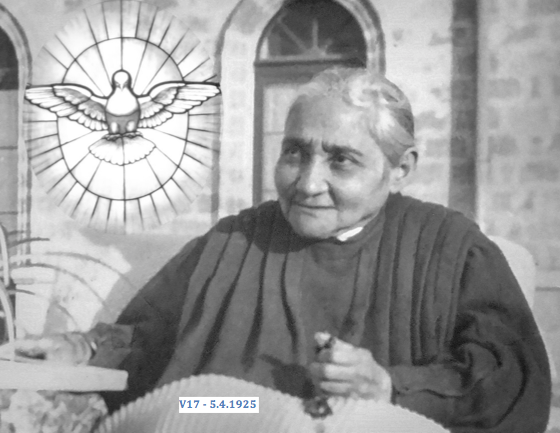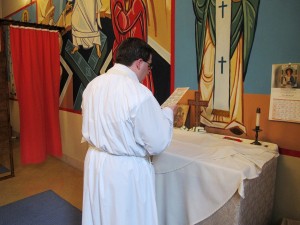Fr. Jerabek reciting the Vesting Prayers as he prepares to celebrate
the Extraordinary Form of the Mass.
Today is the anniversary of the legal document written by (now Emeritus) Pope Benedict XVI, Summorum Pontificum, which made it clear that the old Latin Mass was never abrogated, and that the faithful (and priests, who are also part of the faithful) still have the right to it.
As Benedict wrote in the letter that accompanied that document:
What earlier generations held as sacred, remains sacred and great for us too, and it cannot be all of a sudden entirely forbidden or even considered harmful. It behooves all of us to preserve the riches which have developed in the Church’s faith and prayer, and to give them their proper place.
Thus the Holy Father invited us to reconcile with our history – not reject it – realizing that the older form of the Mass was a source of culture, a source of good, and a source of holiness, not something which we must now look down upon, spurn, or pretend never existed.
Liturgy is traditionally a hot-button issue in Church circles and of course there were many who did not appreciate Pope Benedict’s actions in that regard – as if one could pick and choose which aspects of the Papal magisterium one finds acceptable and follow only those.
While the “old Latin Mass” (which is no longer to be considered old, since it is part of the life of the contemporary Church also) may not be everyone’s cup of tea, it is something that is perfectly acceptable and makes up part of the great diversity that is found within the unity of the Church.
I have learned how to celebrate the “Extraordinary Form” of the liturgy (at least in some of its variety: I have a lot to learn still) and am sure that I will do so from time to time as the opportunities present themselves. Learning that form of celebration has certainly enriched my own spirituality and understanding of the priesthood.
Let’s put it this way: in the Church there are a lot of forms of spirituality, and a diocesan priest has to show himself open to all forms that are legitimate, even if he doesn’t personally share all of them. What right does a diocesan priest have, then, to spurn the Latin Mass? It’s simply not coherent.
In the Diocese of Birmingham today we have a personal parish (in Huntsville) for those who prefer this form, a monastery (near Cullman) where it is regularly offered, and also a parish (in Birmingham) where it is celebrated on Sundays. So we give thanks for Pope Benedict’s act of reconciliation and generosity, which has enriched the lives of many, even here close to home.
Let’s remember to say a special prayer for Benedict XVI on this day, since he faced a great deal of opposition in writing and promulgating the above document, but courageously stood firm and did what he knew to be God’s will for the Church. May God reward him and give him peace and consolation.

